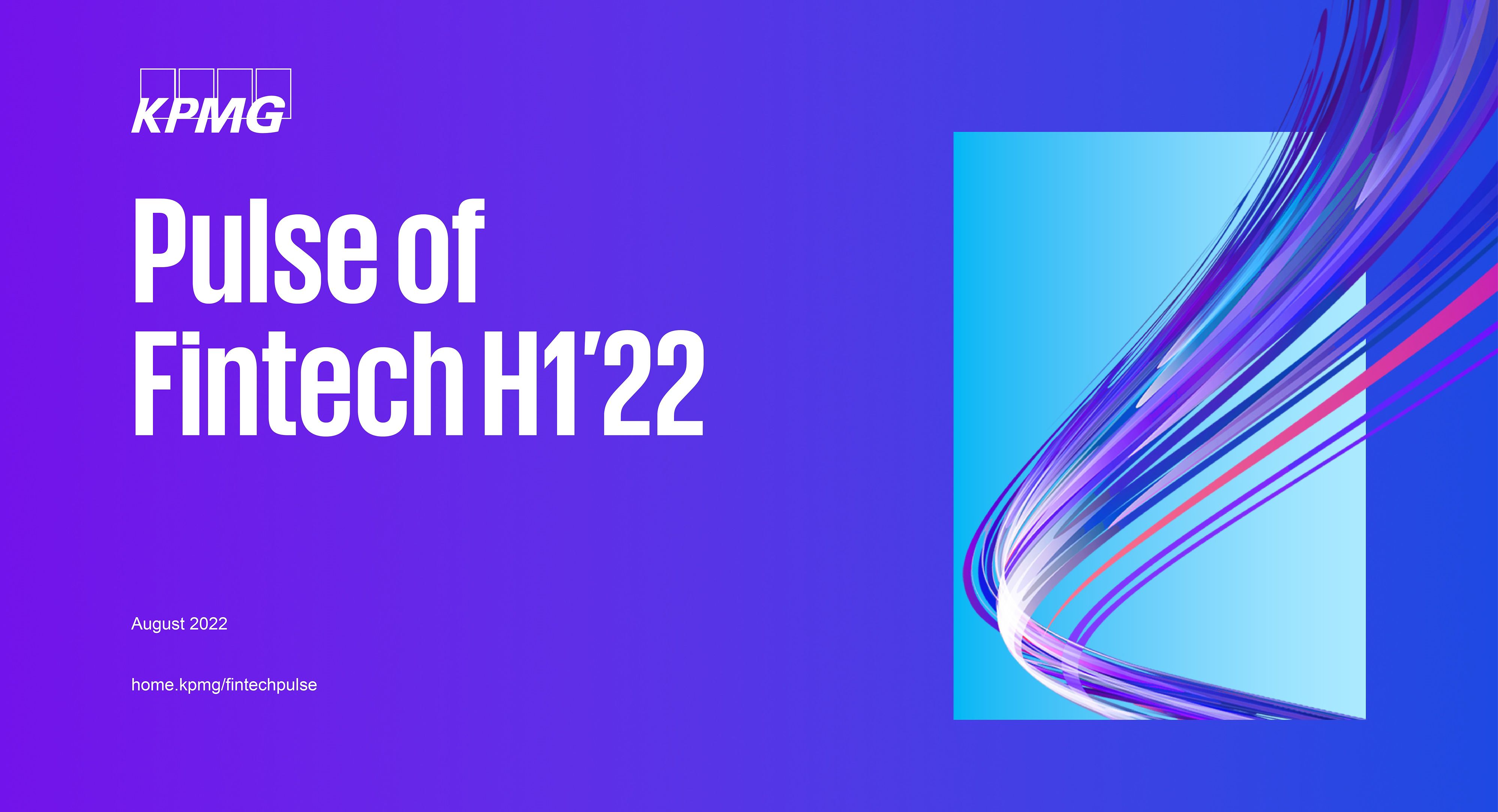Global investment in fintech falls to $107.8 billion despite robust VC funding
Global investment in fintech fell from $111.2 billion across 3,372 deals in H1’22 to $107.8 billion across 2,980 deals in H1’21, mirroring the decline in investment experienced in the broader technology sector. Total fintech investment and deals volume declined in both the Americas and EMEA regions, while the Asia-Pacific region attracted a new annual high of fintech investment amidst a decline in the number of deals. The new Asia-Pacific record was driven almost entirely by three large M&A transactions: the $27.9 billion acquisition of Australia-based Afterpay by Block, the $2.1 billion buyout of Japan-based Yayoi by KKR, and the $1 billion merger of Australia-based fintechs Superhero and Swiftx.

VC investment in fintech remains robust as Europe sets new record
While VC investment globally declined from $66.5 billion in H2’21 to $52.6 billion in H1’22, compared to all periods outside of 2021, the amount was incredibly robust. While the Americas attracted the largest amount of VC funding ($27.2 billion), EMEA saw a new record high level of funding for a 6-month period ($16.6 billion), led by the world’s two largest fintech rounds in H1’22: a $1.1billion raise by Germany-based Trade Republic and a $1 billion raise by UK-based Checkout.com. Fintech-focused VC investment in the Asia-Pacific region remained quite soft at $8.6 billion.
Downward pressure on valuations brings IPO activity almost to a halt, could spark downrounds
The turbulence in the public markets globally had a major impact on the valuations of many public tech companies in H1’22, including fintechs. This, combined with other challenging market factors, brought IPO activity almost to a halt — a trend expected to continue through H2’22. With the IPO door closed, H2’22 could see downrounds as companies that had planned to exit in 2022 look to raise capital under less than optimal circumstances.
Investors looking for the next big fintech opportunity
In 2021, investment in fintech was quite extraordinary as investors flocked to make investments in the sector. While investment has dropped back to levels seen in previous years, the space is expected to remain a strong focus for investors in H2’22 and into 2023. Fintech investors, however, are expected to become more discerning with their investments — focusing more on profitability and cash flow when evaluating opportunities. Investors are also expected to pay more attention to areas adjacent to traditional financial services offerings, such as open data and decentralized finance. The B2B space is also expected to be a high priority for investors.
This article is featured in Pulse of Fintech H1’22
› Explore other sections
› Download the full report (PDF 1.9 MB)
The fintech market experienced a massive year globally in 2021, which makes it look like investment has somewhat fallen off a cliff so far in 2022. That really isn’t the case. We’ve simply shifted back to levels seen in 2019 and 2020. Taking out 2021’s outlier results, global fintech investment and interest was quite positive in H1’22. While the uncertainty permeating the market is expected to continue into H2’22, the diversity of fintech subsectors, combined with the diversity of jurisdictions attracting fintech investments, could help keep investment in the space relatively solid over the near-term.
Payments space stays hot in eyes of investors in H1’22, but could taper off
Investors in all key jurisdictions continued to flock to the payments space in H1’22, investing over $43.6 billion in payments-focused companies. Given the increasing macroeconomic challenges, investment in the payments space could taper off a bit heading into H2’22, particularly with respect to early-stage deals. M&A activity is expected to remain strong as a result of increasing consolidation among payments firms and as the number and size of add-in transactions rises.
Blockchain and crypto space takes hit, still sees big deals
While the crypto space experienced significant challenges during the first half of 2022, crypto-focused companies attracted
$14.2 billion during H1’22, including a $1.1 billion raise by Germany-based Trade Republic in June.
Trends to watch for in H2’22
- Market corrections — including declining valuations, increasing M&A and a growing number of distressed businesses — in light of the predicted recession and the over-enthusiasm and over-investment in key areas over the last 18 months.
- Continued focus on embedded solutions, including payments, finance, and insurance.
- Big tech companies and other corporates prioritizing partnerships, while also looking for opportunities for add-ins at bargain prices compared to recent years.
- Growing focus on B2B solutions aimed at improvement of infrastructure or on the optimization of operational activities like AR/AP.
- Slowdown in crypto interest and investment, particularly retail firms offering coins, tokens and NFTs.
- Increasing focus on underdeveloped fintech markets, including jurisdictions in Africa.
Fintech investors still have a significant amounts of dry powder available to them in many parts of the world. But given the current market climate, they are becoming more discerning with their investments, focusing more on profitability and on the sectors expected to do well in a new challenging market. The B2B space is expected to remain quite attractive to fintech investors heading into H2’22, in addition to areas like open data.
Download Pulse of Fintech H1’22
Global fintech investments in H1 2022 recorded $107.8B with 2,980 deals
Download this edition for:
- Global and regional analysis with key investment data and insights
- Interview with bolttech and spotlight article on embedded finance
- Fintech segment insights for a deeper dive into payments, insurtech, regtech, wealthtech, cybersecurity, blockchain and cryptocurrency
To learn more about the analysis and topics raised in this edition, or to discuss your organization's unique fintech agenda and roadmap, please contact your local KPMG advisors or the contributors in this publication.
Explore other sections in Pulse of Fintech H1’22
Get in touch
Connect with us
- Find office locations kpmg.findOfficeLocations
- kpmg.emailUs
- Social media @ KPMG kpmg.socialMedia









